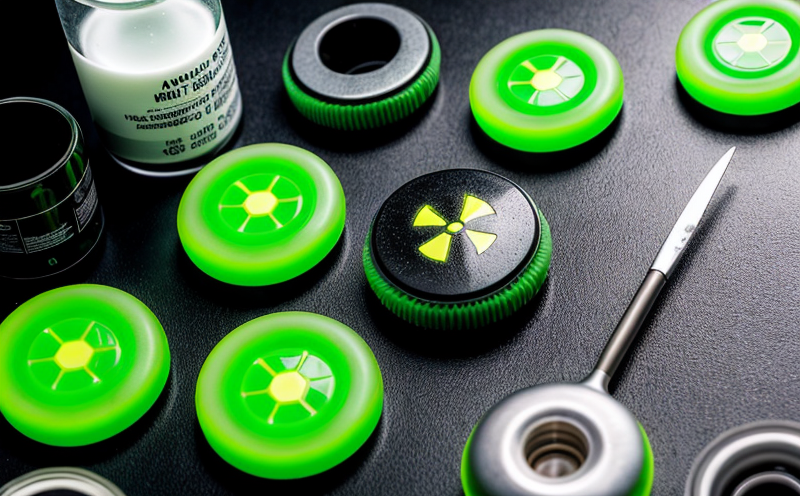EN 18234 Strontium-90 Profiling in Grain-Based Snacks
The European standard EN 18234 specifies a procedure for the determination of strontium-90 (Sr-90) in grain-based snacks. This service is crucial for ensuring the safety and quality of food products, particularly those derived from grains like wheat, corn, barley, and others that are used in snack production.
Sr-90 is a byproduct of nuclear fission reactions, primarily found in radioactive waste materials. While its presence in the environment has been significantly reduced since the 1986 Chernobyl disaster, it can still be detected in certain food products due to contamination from atmospheric fallout or industrial accidents.
The method outlined in EN 18234 involves several key steps that ensure accurate and reliable detection of Sr-90. Specimen preparation is critical; the grains are ground into a fine powder, homogenized, and then subjected to digestion with nitric acid. The resulting solution undergoes liquid scintillation counting (LSC) for quantification.
The use of this standard ensures compliance with international regulations regarding radioactive contamination in food products. Compliance is essential not only from an ethical standpoint but also to avoid potential legal issues stemming from non-compliance.
Compliance with EN 18234 helps companies adhere to the principles of quality assurance and environmental responsibility, contributing to a safer marketplace for consumers.
Why It Matters
The importance of detecting Sr-90 in grain-based snacks cannot be overstated. Radioactive contamination poses significant health risks if consumed over prolonged periods. Strontium-90 is particularly concerning because it can accumulate in bone tissue, leading to increased risk of cancer.
Adherence to standards like EN 18234 ensures that food products are safe for consumption and meet the stringent quality expectations set by regulatory bodies worldwide. This not only protects public health but also enhances consumer trust and satisfaction.
- Public Health: Ensures that consumers are protected from potential radiation poisoning.
- Regulatory Compliance: Helps businesses avoid fines and penalties associated with non-compliance.
- Brand Reputation: Maintains the integrity of the brand by ensuring product safety.
In summary, implementing EN 18234 is not just a legal requirement but also a responsible business practice that contributes to overall public health and safety.
Benefits
- Enhanced Safety: Detects radioactive contamination early, ensuring safer products for consumers.
- Regulatory Compliance: Ensures adherence to international standards and regulations.
- Consumer Trust: Builds confidence in the quality and safety of grain-based snacks.
The benefits extend beyond mere compliance; they also contribute to a healthier food supply chain and increased consumer trust. This service helps companies maintain their reputation while ensuring that products meet stringent international standards.
Use Cases and Application Examples
| Use Case | Description |
|---|---|
| Quality Assurance: | Detects radioactive contamination in grain-based snacks to ensure compliance with EN 18234. |
| Supply Chain Management: | Identifies contaminated batches early, allowing for corrective actions and minimizing risk. |
| R&D Support: | Assists in the development of safer grain-based products by identifying potential contamination issues. |
| Compliance Verification: | Verifies that all grain-based snacks meet the stringent requirements set by EN 18234. |
The use of this service in these scenarios ensures that food products are safe and compliant with international standards, thereby protecting public health and maintaining brand integrity.





